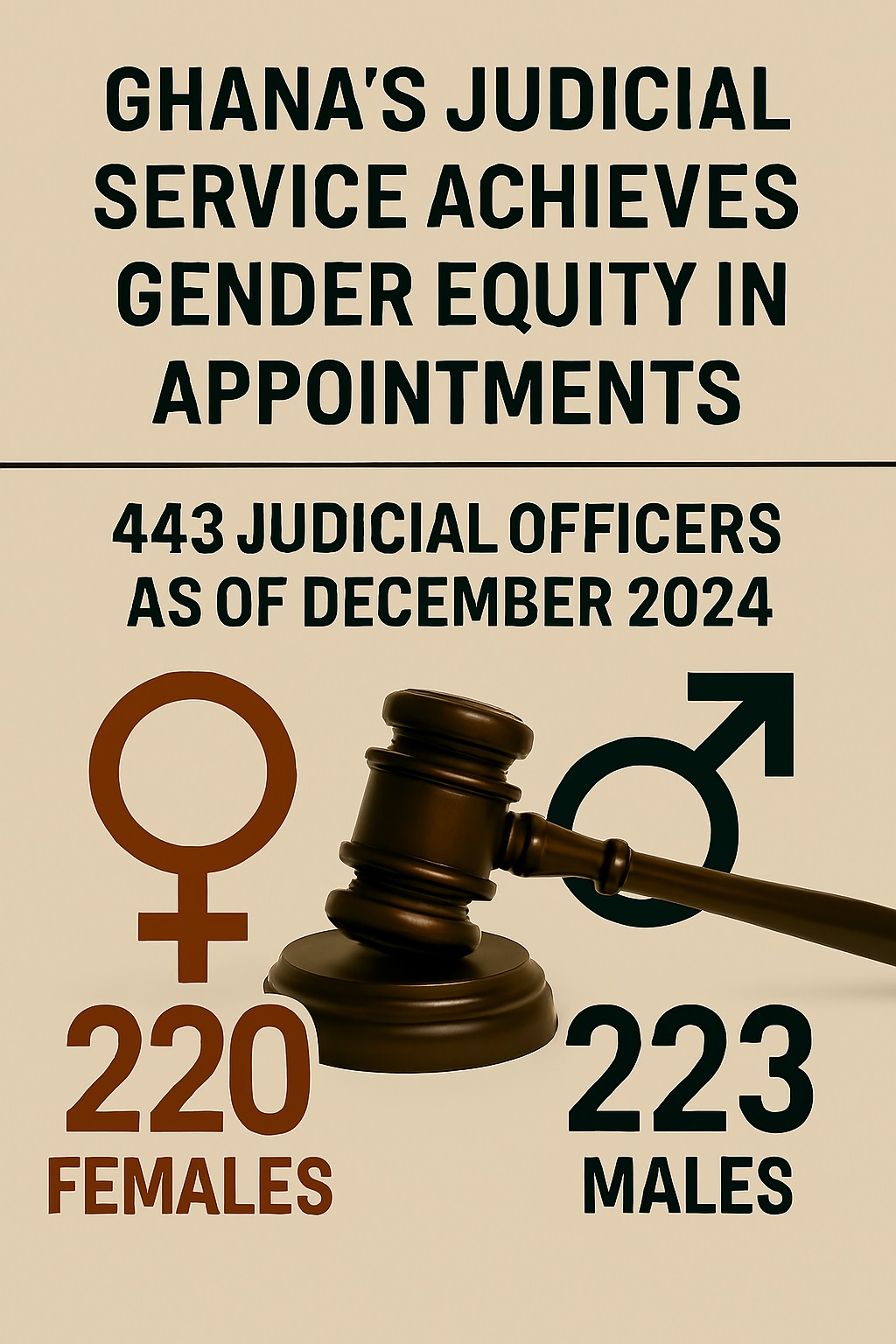Ghana’s Judicial Service Achieves Gender Equity in Appointments

Ghana’s Judicial Service has reached a historic milestone in gender equity, achieving near equal representation in the appointment of justices and magistrates across the country. As of December 2024, the service recorded 443 judicial officers, with 223 males (50.3%) and 220 females (49.7%), making it the first public institution to meet the 30% gender equity target set by the Affirmative Action (Gender Equity) Act, 2024.
Research and Institutional Findings
The gender equity achievement was highlighted in a workshop organized by the Affirmative Action Law Coalition, with support from ABANTU for Development and Friedrich Ebert Stiftung (FES). The coalition conducted a situation analysis in 2011, which revealed a low number of women in senior judicial roles. Based on these findings, the Judicial Service implemented deliberate recruitment strategies to increase female representation.
Breakdown of Gender Representation
The gender balance spans across various levels of the judiciary:
-
Supreme Court: 14 justices (10 males, 4 females).
-
Court of Appeal: 32 justices (19 males, 13 females).
-
High Court: 123 justices (68 males, 55 females).
-
Circuit Courts: 101 justices (47 males, 54 females).
-
District Courts: Professional magistrates (34 males, 68 females); Career magistrates (45 males, 26 females).
This achievement reflects a deliberate effort by the Judicial Service to increase female representation, following the 2011 gender policy recommendations.
Impact of the Affirmative Action Act
The Affirmative Action (Gender Equity) Act, 2024, passed on July 30, 2024, and signed into law on September 11, 2024, mandates a progressive increase in women’s participation in public life, aiming for 50% gender parity by 2030. The Judicial Service’s success demonstrates that institutional commitment and policy-driven strategies can lead to tangible gender equity outcomes.
Public and Institutional Reactions
Legal experts and gender advocates have praised the Judicial Service’s achievement, with Sheila Minkah-Premo, Convenor of the Affirmative Action Law Coalition, stating that it sets a benchmark for other institutions. She emphasized that gender-conscious policies and structured recruitment strategies were key to this success.
Meanwhile, the Attorney-General’s Office is reportedly close to meeting the 30% gender equity threshold, though official data is yet to be confirmed.
Ghana’s Judicial Service has demonstrated that gender equity in leadership is achievable through policy-driven initiatives and institutional commitment. As the country moves toward its 2030 gender parity goal, this milestone serves as a model for other public institutions striving for inclusive governance.



0 Comments
No comments yet, be the first to comment